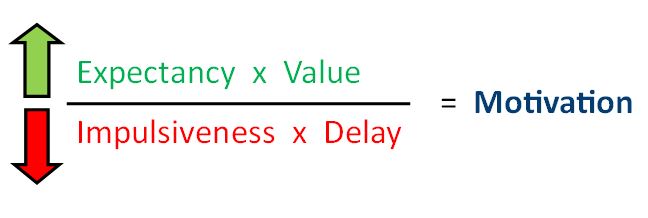
When I’m studying for a major test or finals, it’s funny how clean my room becomes.
I’ll sit down with a hot coffee, crack open a heavy textbook, and pull out a crisp sheet of lined paper and just as I’m about to take notes… I’m suddenly bothered by my unmade bed.
Next thing I know, I’m frantically making the bed only to become concerned about the pile of dirty clothes that have been collecting in the corner. Once I start sorting and bagging the clothing in preparation for the laundry mat, a visualization of the messy bathroom pops into my head. See a pattern?
My sudden urge to clean is definitely due to procrastinating studying a certain unsavory subject (*whispers* …Business Law). I’m sure many of you are in the same boat around this time in the semester. Finals are approaching, but the beast of burden that is procrastination is going nowhere!
Believe it or not, even the most efficient people suffer from procrastination. Although this problem looms above them like a dark cloud (same as it does for us normal folks), efficient people equip themselves with tactics and strategies to combat their urge to procrastinate.
Learning how to take down procrastination with the techniques I’m about to share is something I wish I had discovered sooner. It wasn’t until my Junior year that I realized that you actually had to research and learn how to study (how meta!).
Although I’m constantly trying to find ways to increase productivity, here’s my current game plan to conquer preparing for finals!
Table of Contents
The Procrastination Equation
I’ve found that the book The Procrastination Equation by Piers Steels gives one of the best strategies I’ve seen for overcoming procrastination. In the book, Steels describes an equation he created that explains why we procrastinate. This equation is as follows:
Motivation = (Expectancy x Value) / (Impulsiveness X Delay)
Please, don’t be scared away by this equation, I swear it’s a lot simpler than it looks and it’s going to help you get through Dead Week.
Let’s break this equation down bit by bit. In the numerator, we have “Expectancy” and according to this equation, expectancy is how strongly you perceive you are able to accomplish the task ahead of you.
With three cumulative final exams and a paper due in a week’s worth of time, your expectancy to complete these tasks might be pretty low. No worries though because I’m going to show you how to increase your expectancy later on.
Motivation = (Expectancy x Value) / (Impulsiveness X Delay)
Next, there is “Value” and value in this context is the reward we are given for accomplishing the task. This reward may be making a good grade in statistics by acing the final or just passing the class with the simple pleasure of not having to take it again next semester.
Motivation = (Expectancy x Value) / (Impulsiveness X Delay)
In the denominator, we have “Impulsiveness” and this is our vulnerability to distractions, instant gratification, and just the impulses to do anything other than the task at hand. Checking your phone constantly while studying or succumbing to writing a paper on the day that it is due because other things kept coming up are both examples of impulsiveness.
Motivation = (Expectancy x Value) / (Impulsiveness X Delay)
The word “Delay” in the denominator signifies the time between now and the deadline for the task. The further away finals are, the less motivated we are to study for them, but if finals were tomorrow, we’d spend the night cramming rather than sleeping.
So how can we use this theory to make the week leading up to our finals a successful one?
We want to capitalize on our “Motivation” or desire to do well. So, our goal is to increase the numerator (Expectancy and Value) while simultaneously decreasing the denominator (Impulsiveness and Delay) to increase our output of motivation.

Increase Expectancy
Like I mentioned before, a week of studying for several finals, working on group projects, and/or writing papers can be especially daunting. Right now, it’s okay to feel like the week ahead of you will be impossible to complete, but we do need to change this perception!
Here are my tips on increasing your confidence for finals week :
- Spend this Sunday night breaking down all your projects into smaller, more digestible sub-tasks and spread them out throughout the week.
- Use Interval Studying (the Pomodoro Technique) to increase focus and create a checkpoint in your study sessions. Assign each of your sub-tasks to 25-minute intervals with 5-minute breaks in between. If you have a short attention span like me, spending 25 minutes on focused studying with a short break at the end of it doesn’t sound that bad. Click on the link above to learn more about the Pomodoro Technique.
- Schedule time to seek help from professors or tutors. If you can’t figure something out in a 25-minute interval or two, make note of it and seek help for it during your professor’s office hours or at a tutoring session.
Increase Value
We can’t change the reward we get from completing a final or turning in a paper or project. That’s set in stone… we pass or fail.
From past experience of procrastinating, we know we tend to value what’s going on in the short-term as opposed to the long-term. So, what we can change is the reward in the short-term.
Create a reward for each day of completing your scheduled sub-tasks. I suggest a long fun break, like going out to dinner with friends, hanging out at the park, or watching an episode or two of your new favorite show on Netflix.
By creating these end-of-the-day long breaks/rewards you have something to look forward to while you’re working hard and completing your studies or projects’ tasks.
Decrease Impulsiveness
Find out what your distractions are and eliminate them. Here is my personal list of distractions:
- Smartphone. My smartphone has an “Always on Display” which features the time, battery level, and notification icons. For some reason, this alone will distract me, so I have to put the phone on airplane mode and hide it outside my line of vision.
- Study Groups. As much as I wish study groups worked for me, studying around peers makes irrelevant chatting to tempting. I save group study sessions for reviewing or learning concepts better through teaching others.
- Being Hangry. There is nothing worse than when hunger disrupts a productive session. I lose all focus and end up packing up everything to go searching for food. Now, I make sure to have healthy snacks and meals prepared before I start a study session or go to the library.
- Youtube, News, and Social Media Websites. Since these sites are so addictive, I’ve downloaded the chrome extension, Stay Focusd, to minimize the time I spend on distracting websites. If Stay Focusd isn’t for you, just google “website blockers for studying” and you can choose from tons of options.
- Friends and Family. I communicate my schedule to friends and family so they know when I need to be left alone and support me when I get off track of the schedule. It helps to have an outside support group to count on.
Decrease Delay
According to Tim Urban during his Ted Talk, Inside the Mind of the Master Procrastinator, the reason we feel the urgency to complete a task right before a deadline is because of the Panic Monster.
As Tim Urban says during his TED Talk,
“The panic monster is dormant most of the time, but he suddenly wakes up anytime a deadline gets too close or there’s a danger of public embarrassment, a career disaster or some other scary consequence.”
For most of us, the panic monster feels much too real. It rattles our brain and causes extreme stress in the wake of finals. But what if we could use the panic monster for good?
If we could replicate a deadline for our daily sub-tasks, we could wake the panic monster early on to increase focus and productivity. Of course, we wouldn’t want the panic monster to cause us extreme distress, but it could give us that healthy amount of stress and kick in the butt we need to get our work done.
In order for this to work, we need our made-up deadlines to feel like they’re real… they need rewards and consequences just like any other deadline. (Remember how your finals week deadlines equal passing or failing your courses.)
Well, we already have rewarding breaks scheduled if we do complete our daily sub-tasks, but what are the consequences if we don’t complete them?
If you don’t make your personal deadline, I suggest taking your long rewarding break away and using that time to finish your tasks. If that still doesn’t work, try grounding yourself. (I’m not kidding.)
For example, I enjoy eating out and if I don’t accomplish my goals set for the day I have to eat something from home rather than what I really want, which is probably Torchy’s Tacos. We’re all different, though, so it’s up to you to find rewards and consequences that motivate you.
Using the Procrastination Equation on the Fly
If you feel a drop in motivation throughout the coming week/weeks, you can use the Procrastination Equation to pinpoint what aspects you need to change for a motivation boost.
Are you overwhelmed by an upcoming history test? Maybe you need to figure out a way to increase your expectancy by breaking up the review into smaller bite-sized tasks.
Does it seem like you just can’t focus on a studying? Try decreasing your impulsiveness by getting rid of any current distractions or take a five-minute walk for a mental break.
There are only four variables that could be blocking your productivity. Fiddle around with the equation to find what works for you.
What do you think?
Do you think Piers Steels’s Procrastination Equation or the Pomodoro Technique will help you prepare for your finals? Do you have your own strategy for studying? Are you ready for Dead Week? Let us know your opinions in the comments below!
